[ad_1]
Mood swings during pregnancy are common. Due to hormonal shifts, expectant parents can feel blissfully happy one moment and teary or highly frustrated the other. Usually, these rapid emotional changes subside when pregnancy goes into the second trimester and can pick up again at the end of it.
For this mom-to-be, the mood swings lasted the whole pregnancy and became even worse after birth as she developed postpartum depression. Her husband couldn’t help but notice that his wife did a whole 180 when she became pregnant. It got to a point where she became abusive and he made the decision to protect himself and the child and divorce her.
Scroll down to find the full story and a conversation with perinatal mental health nurse and founder of EmPowerMatrescence, Emma Snelgar, who kindly agreed to tell us more about mental health during pregnancy.
Intense mood swings are common at the beginning of the pregnancy and often subside after the first trimester

Image credits: Blake Cheek / unsplash (not the actual photo)
For this pregnant woman, it continued for the whole pregnancy and afterward, she even started exhibiting abusive behavior
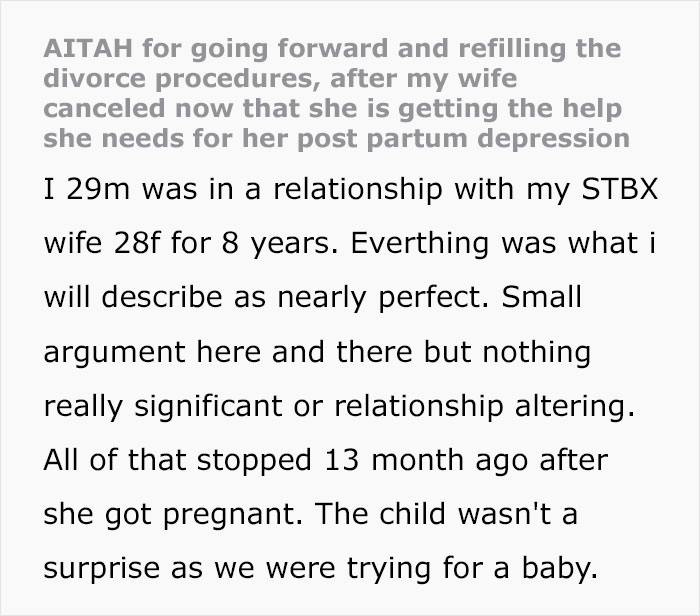



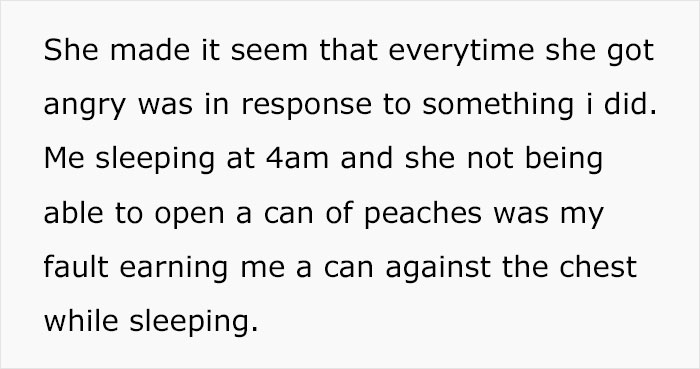
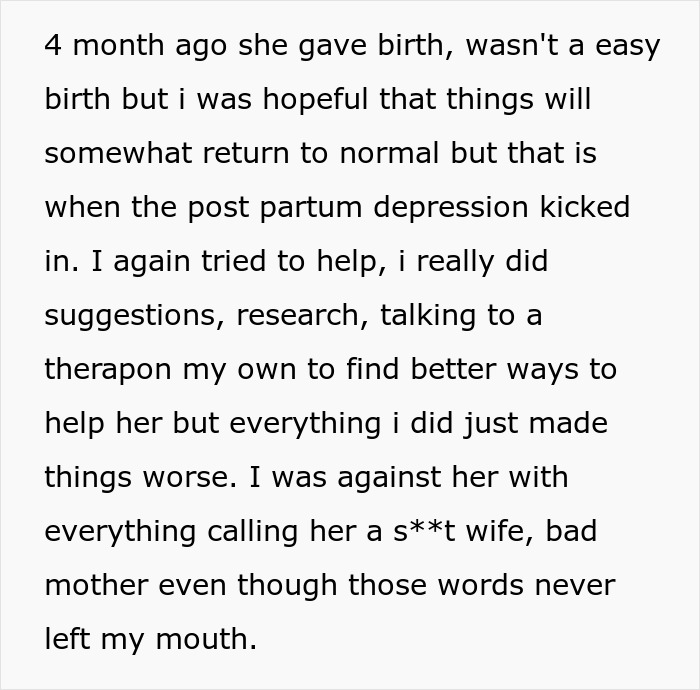
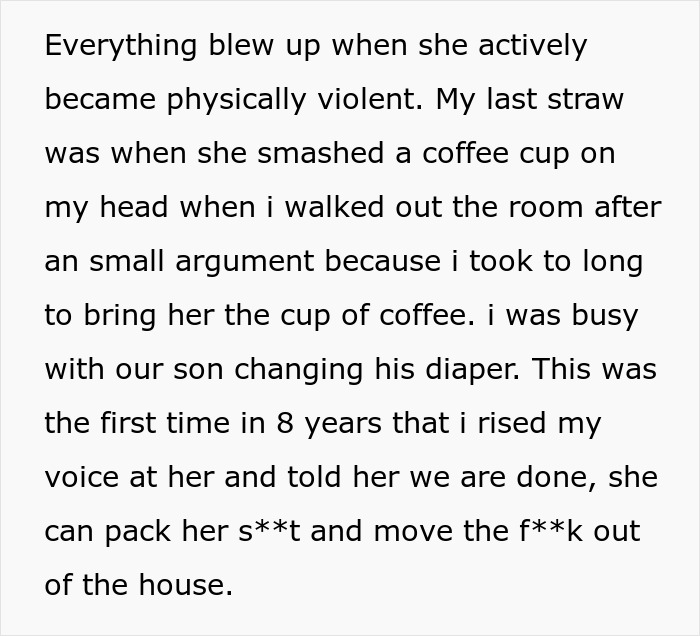
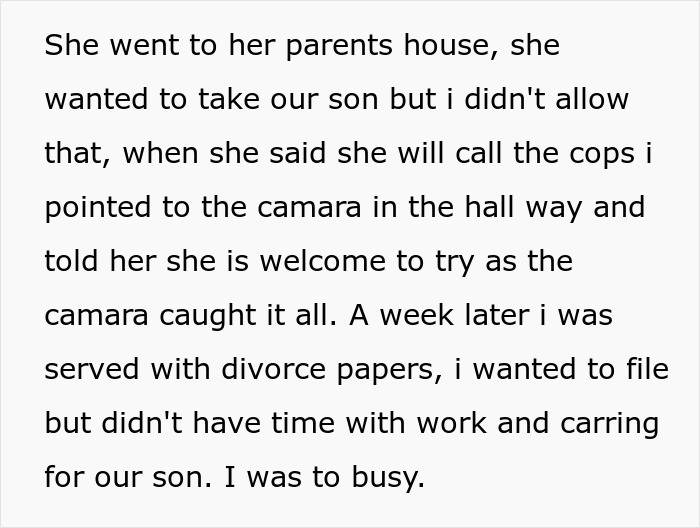
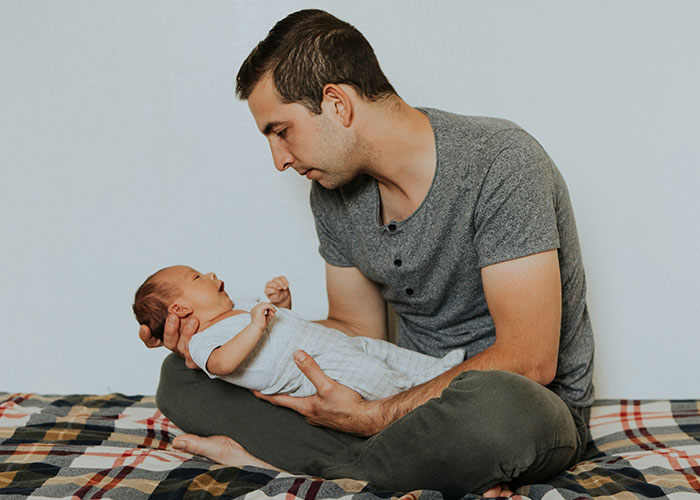
Image credits: Curated Lifestyle / unsplash (not the actual photo)
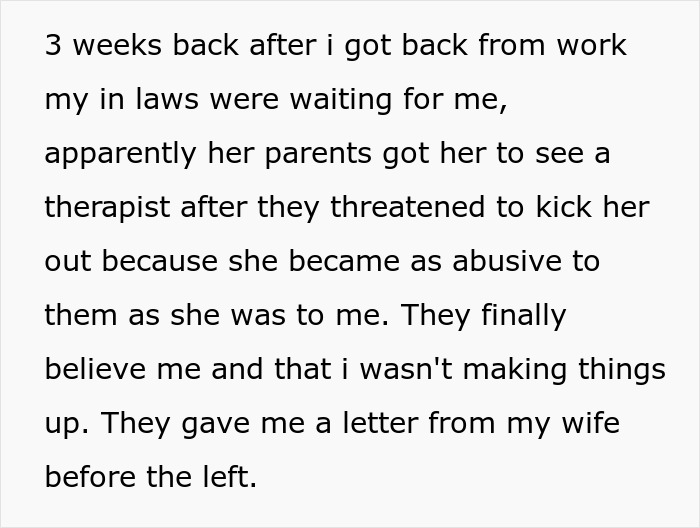


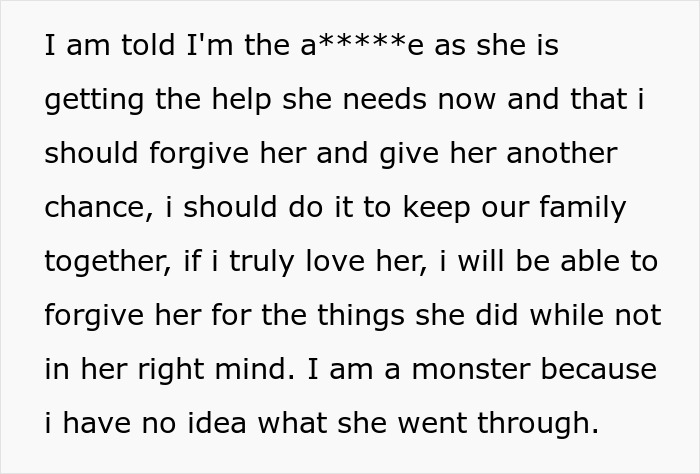
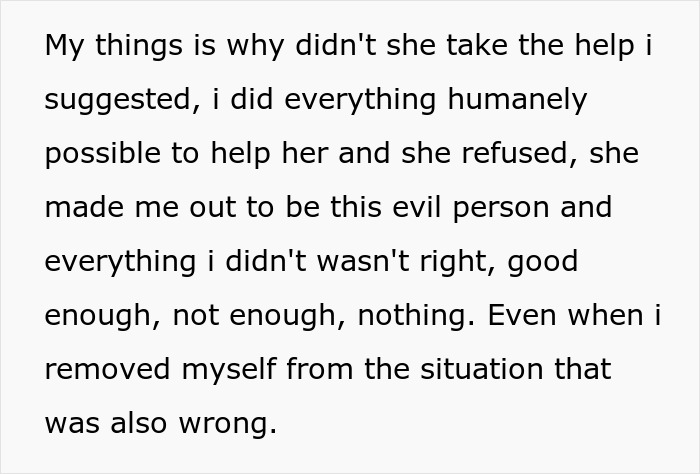


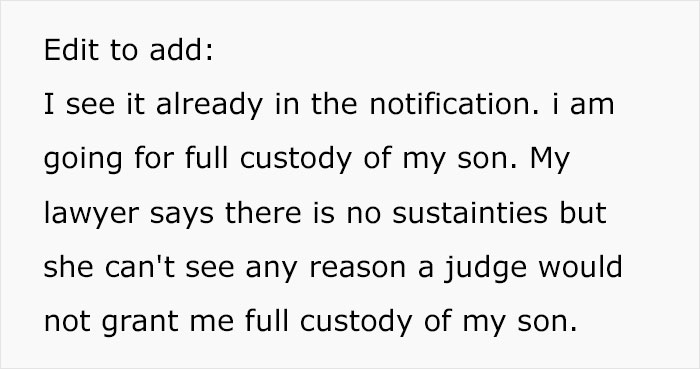

Image credits: ThrowRAevilhusband
“Abusive behaviours are not a normal symptom of pregnancy”

Image credits: freepik (not the actual photo)
“Pregnancy can trigger intense hormonal shifts, this we know,” says perinatal mental health nurse and founder of EmPowerMatrescence, Emma Snelgar.
“Physical discomfort, psychological stress, and life changes can influence mood and behaviour. Emotional symptoms like irritability, frustration, or anger can become overwhelming. In some cases, underlying conditions such as anxiety, depression, and previous trauma can exacerbate these symptoms,” she explains.
A lack of recognition and support through such changes can intensify such emotional symptoms, says Snelgar. “Anger can also stem from fear of the unknown—pregnancy, birth, and becoming a mother for the first time can be daunting,” she adds.
If the woman didn’t have the best childhood, which might encompass experiencing poverty, abuse, or poor attachment to primary givers (e.g. avoidant, disorganized, or anxious), she can feel fearful of bringing a child into the same environment she grew up in.
However, Snelgar notes, “Whilst frustration and anger are not uncommon, abusive behaviours are not a “normal” symptom of pregnancy and could indicate deeper mental health issues that warrant professional support.”
Many barriers might prevent pregnant women from seeking help

Image credits: freepik (not the actual photo)
Even though pregnant parents might be aware that their symptoms require professional attention, many barriers might prevent them from seeking help. One of them is stigma, or the fear of being judged or perceived as a “bad mother.” “This can also include a deep fear of having their baby taken off them if they are perceived as such,” notes Snelgar.
In addition, they might not have access to care, mistrust healthcare professionals due to previous negative experiences, have unsupportive relationships in their life or are conditioned by society to think that discomfort during pregnancy is normal and they shouldn’t be overly dramatic about it. All of these circumstances can hinder their willingness to seek out help. There’s also the possibility that they don’t recognize that their intense feelings go beyond typical pregnancy stress.
During such time, a partner’s support is crucial. This means “encouraging open communication with a curious, non-judgemental approach, educating themselves about common mental health challenges during pregnancy to validate her experiences, offering support without pressure by gently suggesting professional help without feeling forced or judged, enlisting other trusted supports—encouraging her to talk to close family or friends, and providing practical support—reducing stress by sharing responsibilities or taking on some of the mental load, and attending appointments with her.”
However, it’s important to recognize limits. “If her behaviours are harmful to herself or others, it may be time to involve other healthcare professionals or perinatal services,” says Snelgar. “As a partner, it may also be helpful to find psychological support for yourself to help navigate these changes, and with that, you are also normalising seeking psychological support for these major life changes you are both going through.”
Most readers supported the husband, calling out the wife’s abusive behavior





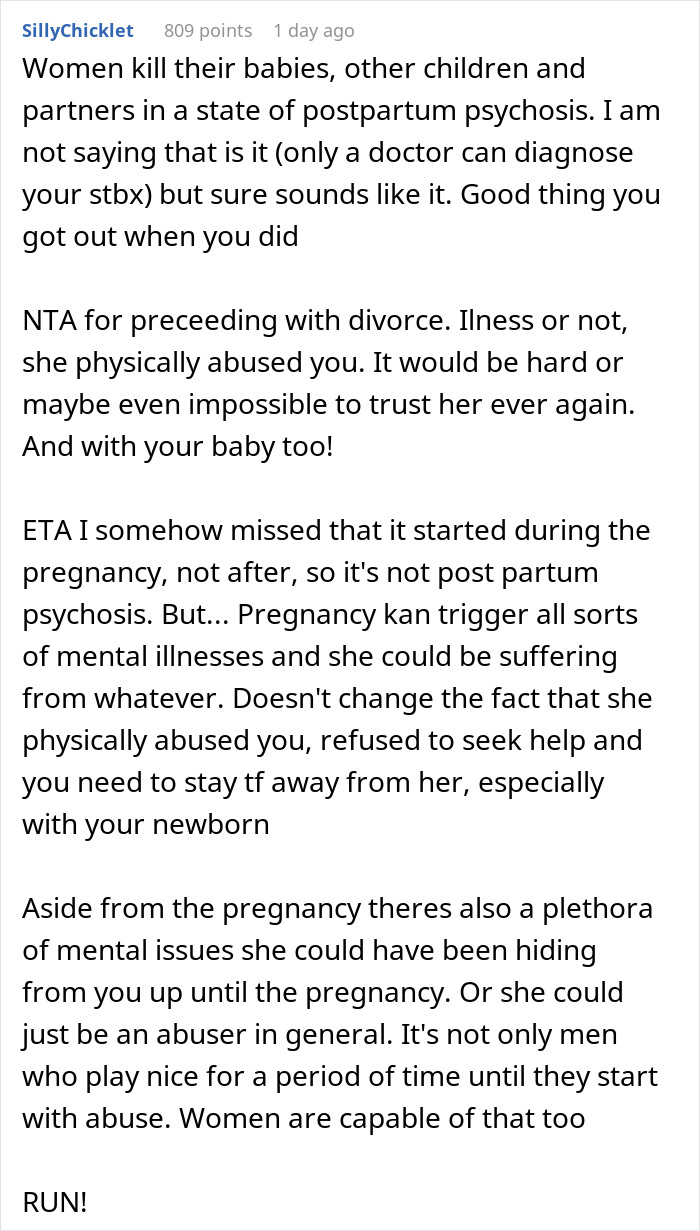


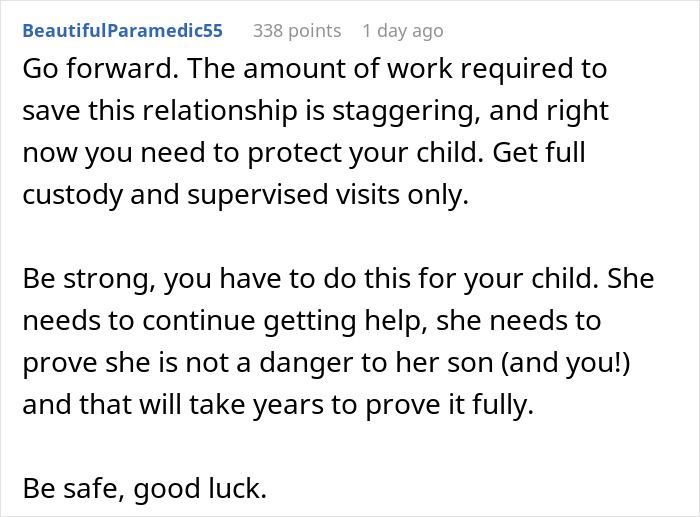
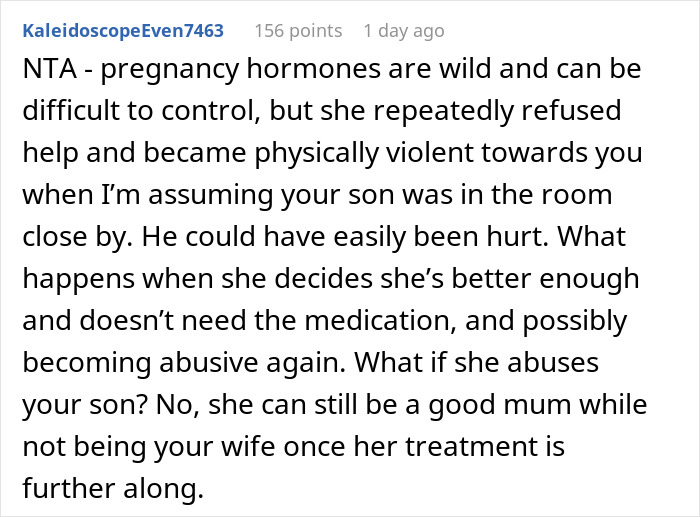



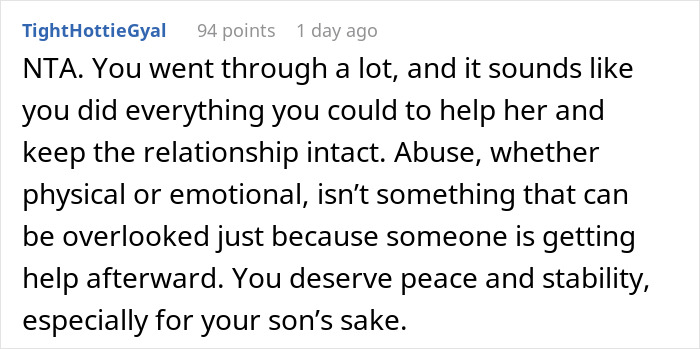

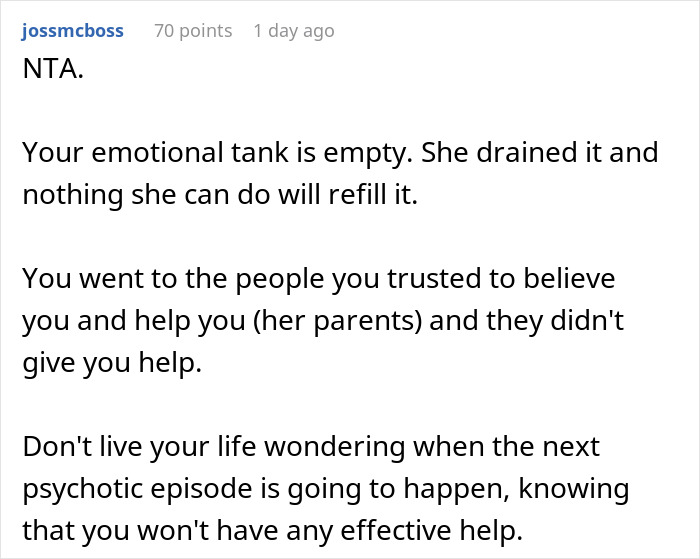
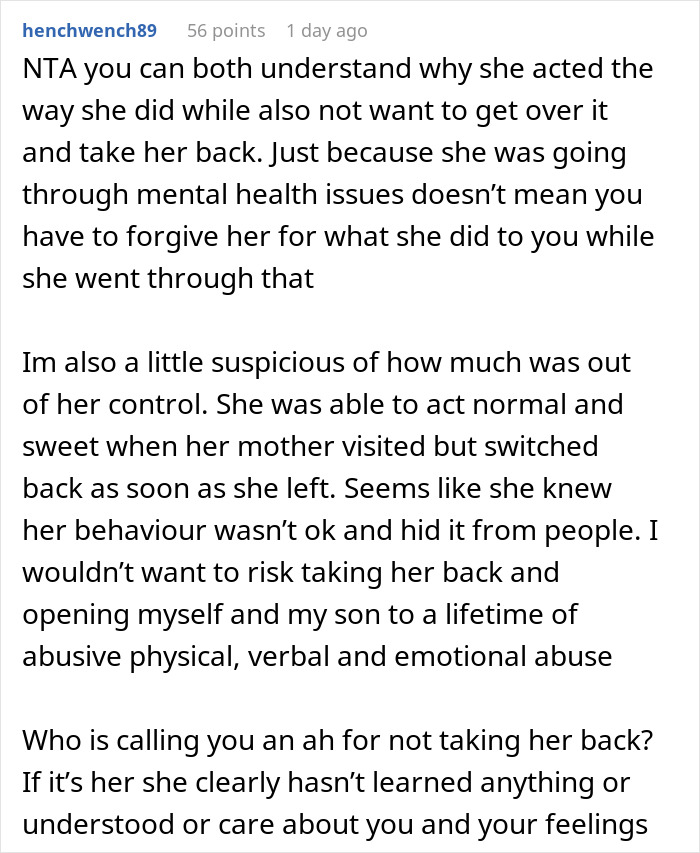

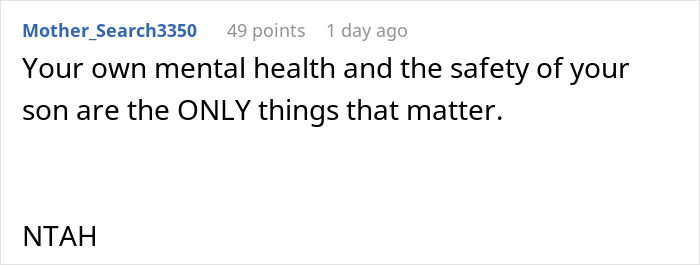


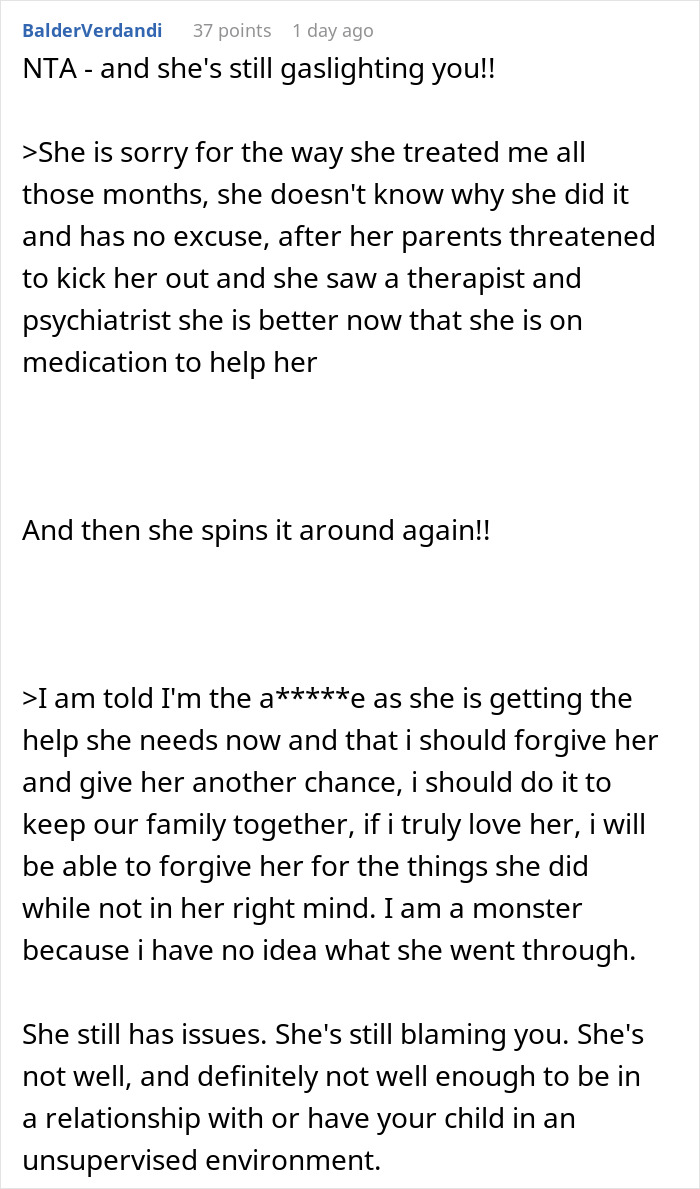
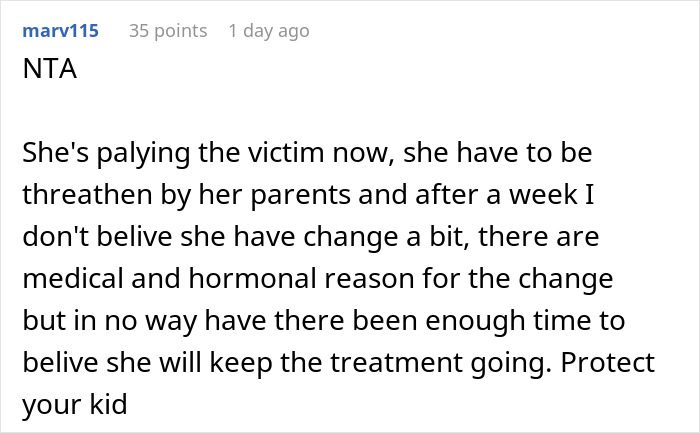
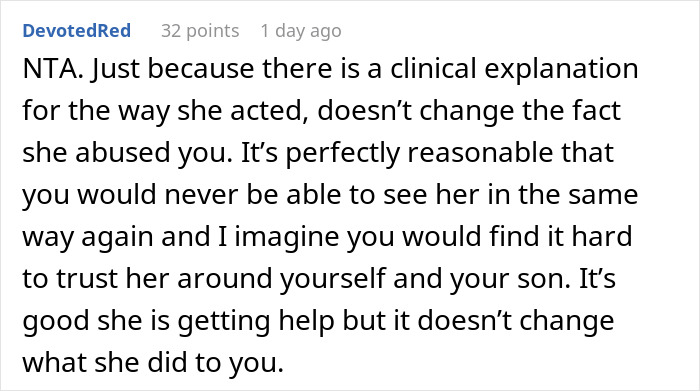
However, some thought he was rushing into divorce too quickly



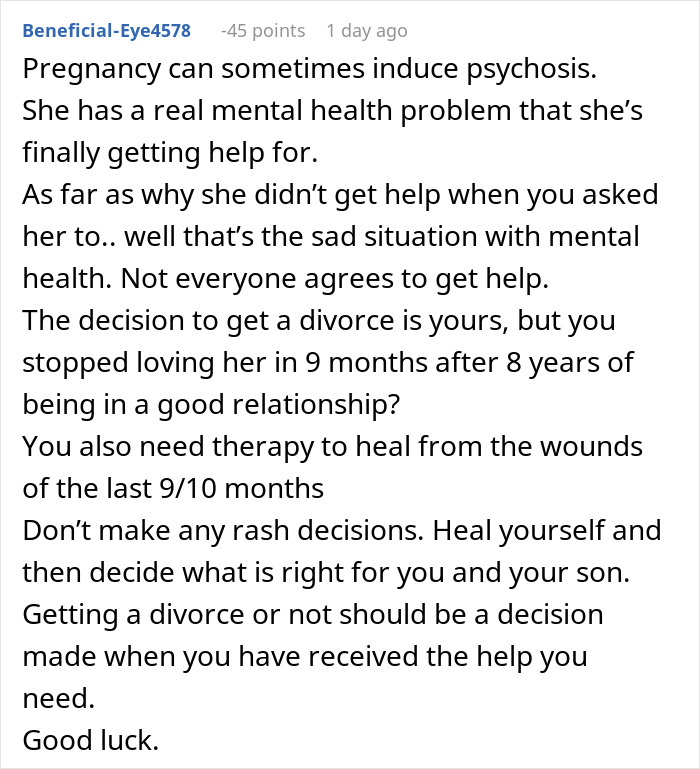
The post Man Endures Hell During Wife’s Pregnancy, Divorces Her When Things Get Worse After Birth first appeared on Bored Panda.
[ad_2]
Source link
























